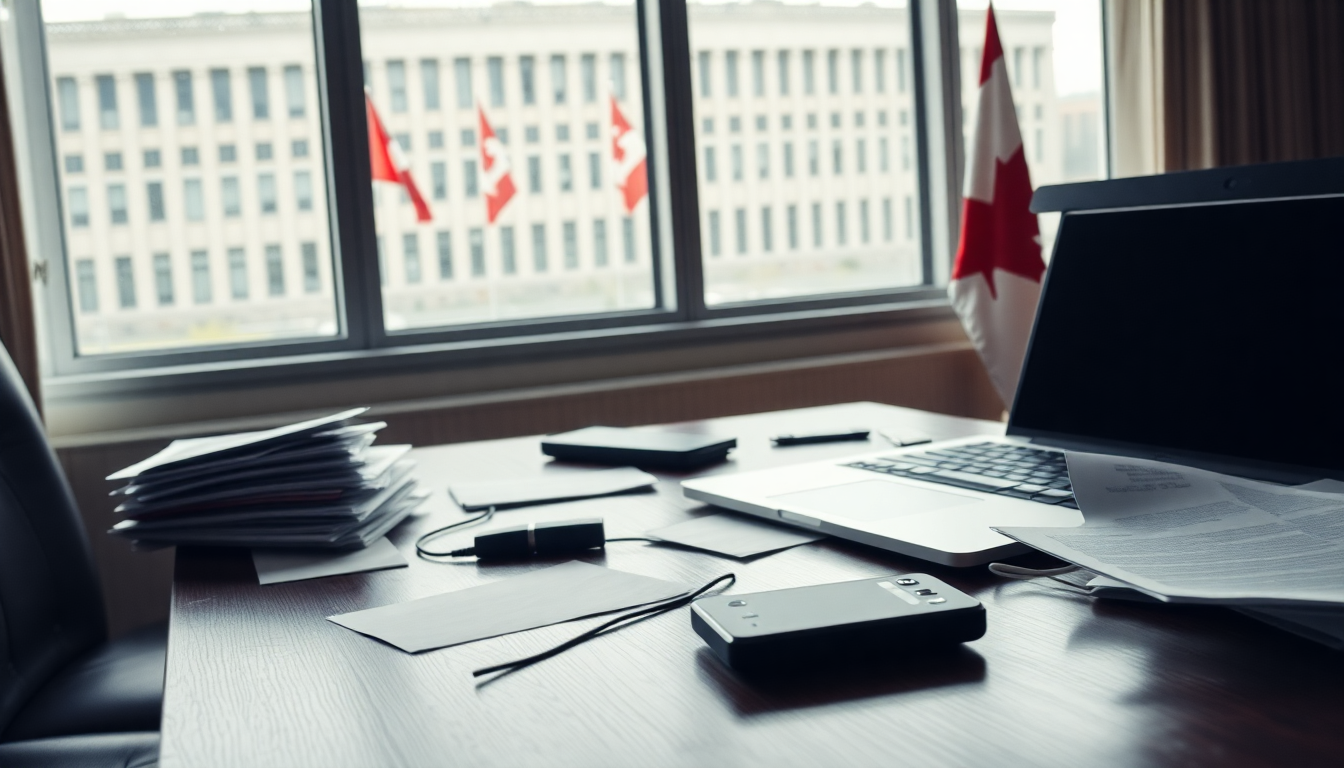Table of Contents
The political landscape in Canada has seen quite a shift over the last twenty-five years, particularly when it comes to the safety of elected officials. Remember the infamous pie incident with Prime Minister Jean Chrétien back in 2000? It was once just a silly prank, a moment of levity in an otherwise serious political environment.
Fast forward to today, and it’s clear that threats of violence against politicians have become alarmingly common, raising serious questions about the future of democracy and the well-being of those who dedicate their lives to public service.
Escalating Threats: A Growing Concern
Recent statistics paint a concerning picture: threats against the Prime Minister and cabinet ministers have skyrocketed. According to documents from the Privy Council Office, recorded threats jumped from just 40 in 2021 to an astonishing 311 in 2024. This sharp increase signals a rising tide of hostility towards political figures.
Take Prime Minister Justin Trudeau, for instance. The number of threats against him soared from 11 in 2021 to a staggering 212 in 2024. How does this kind of intimidation impact our democracy? It’s enough to make anyone think twice about entering politics.
Catherine McKenna, a former federal minister, has spoken out about the severity of this issue. She argues that the fear of violence should never hinder someone from pursuing a career in public service. Unfortunately, the atmosphere has become increasingly hostile, especially for women and marginalized groups.
The personal anecdotes she shared reveal a troubling reality where threats and harassment are not just rare occurrences but rather part of the daily lives of many politicians.
Looking Back: Security Measures Then and Now
The pie incident may have been dismissed as harmless fun back in the day, but it also signals a different era in Canadian politics.
Reflecting on the past, we can see a history riddled with security breaches that officials have struggled to manage. Chrétien himself faced confrontations, like the infamous “Shawinigan Handshake” incident in 1996, which highlighted the challenges of keeping politicians secure.
Today, the Royal Canadian Mounted Police (RCMP) find themselves in a tough position: how do you balance public access to politicians with their need for security? Assistant Commissioner Michele Paradis has noted the ongoing efforts to assess risks and adapt to this evolving threat landscape. With recent discussions around new legislation to better protect elected officials, the urgency of the situation is more apparent than ever. In 2024, RCMP Commissioner Mike Duheme even proposed legal changes aimed at streamlining the prosecution of those who threaten public officials, showcasing a proactive stance on safeguarding our democracy.
The Ripple Effect of Political Threats
The surge in threats against politicians carries significant implications for how society engages with democracy. As McKenna pointed out, when personal attacks and the dehumanization of public figures become normalized, it creates a toxic environment where threats might be seen as acceptable. This is particularly troubling for women, racialized individuals, and members of the LGBTQ2+ community, who often face even more intense scrutiny and hostility.
Experts like Rob Huebert have warned that the potential for violence against political leaders is a constant concern, necessitating ongoing vigilance from security forces. The societal shift towards aggressive behavior, combined with an increasing tolerance for inappropriate conduct, presents significant challenges for public figures. Chris Mathers, a retired RCMP officer, aptly noted that security protocols have had to evolve in response to these changing dynamics, leading leaders like Trudeau to adopt more cautious approaches to public engagement.
In summary, the rise in threats against Canadian politicians calls for a critical look at our democratic values and the safety of those who uphold them. As we examine the past and contemplate the future, it’s crucial to create a political climate where individuals feel safe in their roles as public servants, free from the looming threat of violence and intimidation. How can we ensure that our democracy remains robust and welcoming to those who wish to serve?





